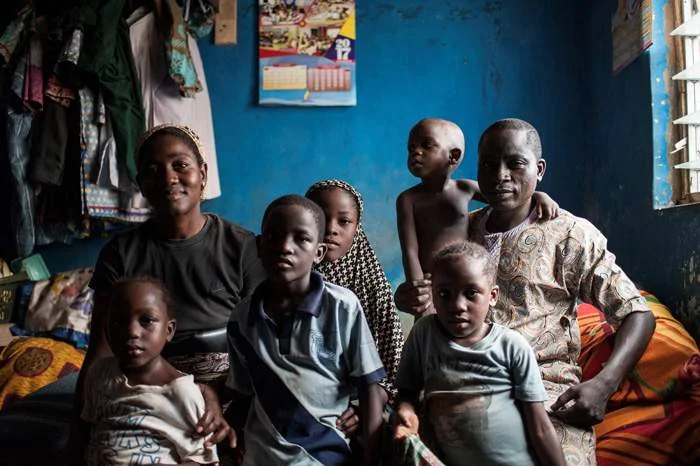Toyin Jacob, a 60-year-old shopkeeper in Makoko, Lagos, never imagined relying on handouts. Before 2020, she lived comfortably in a concrete house with electricity, unlike many neighbors in the floating slum’s cramped huts.
Her daughter attended university, and her son had a job. However, the COVID-19 pandemic and her husband’s death in 2020 shattered her stability. The five-week lockdown in March 2020 crippled her small business. “I couldn’t continue,” Jacob said.
Now, she sells household items to survive, joining thousands in Makoko classified as “extremely poor” by aid agencies. The economic crisis, worsened by Nigeria’s second recession in four years, has pushed urban residents like Jacob into poverty, highlighting the pandemic’s lasting impact.
COVID-19 Lockdown’s Devastating Effects
The lockdown devastated Makoko, a coastal community in Lagos where families live without running water or electricity. Jacob’s business, once sustainable, couldn’t withstand market closures. “There’s no money to buy new provisions,” she said. The World Bank estimated seven million more Nigerians would fall into poverty in 2020, many in urban areas like Lagos.
The World Food Programme (WFP) noted a tripling of hungry people in Kano, reaching 1.5 million in six months. In Lagos, WFP and the government began aid distribution in October 2020, providing 37,000 naira ($97) to 68,000 people, including Jacob, to cover two months of food. This aid aims to cushion the lockdown’s blow, but it’s a small relief in a megacity of 20 million.
Poverty Deepens in Urban Nigeria
Before COVID-19, nearly half of Nigeria’s 200 million people lived on less than $1.90 daily, rivaling India for the highest number of poor. The pandemic worsened this, with urban and educated residents now among the poorest. In Makoko, residents like Bidemi Aye struggle to afford one meal daily.
“With coronavirus, it’s worse,” Aye said, sitting in her bamboo hut. Her family survives on her husband’s meager earnings as a fish seller. Inflation has doubled the price of staples like millet, pushing more into poverty. Nigeria’s oil-dependent economy, hit by a second price crash in 2020, entered recession, with youth unemployment at 40% even before the crisis.
Aid Efforts Amid Ongoing Challenges
WFP’s Chi Lael emphasized supporting vulnerable residents to ensure food security while they seek income. “We want them to know they have food at home,” she said. However, aid is limited in Lagos, where most rely on daily wages.
The pandemic, with 92,705 cases and 1,319 deaths in Nigeria by January 2021, closed markets, leaving many hungry. In Makoko, phone numbers scribbled on walls advertise work for 2,500 naira ($7) daily, reflecting desperation. Posts on X from 2021 highlight public frustration, with users like @LagosResident noting the stark contrast between Makoko’s poverty and Lagos’s wealth.
Future Outlook for Makoko Residents
Makoko’s challenges persist as Nigeria grapples with inflation and economic recovery. Jacob and Aye represent countless residents facing a bleak future without sustained support. The WFP’s aid, while critical, is a drop in the ocean for Lagos’s population.
As Nigeria navigates post-COVID recovery, addressing urban poverty and unemployment remains urgent. Residents’ resilience, coupled with targeted aid and economic reforms, could offer hope. For now, Makoko’s community relies on small-scale aid and determination to survive, with many, like Aye, saying they “survive by the grace of God.”






